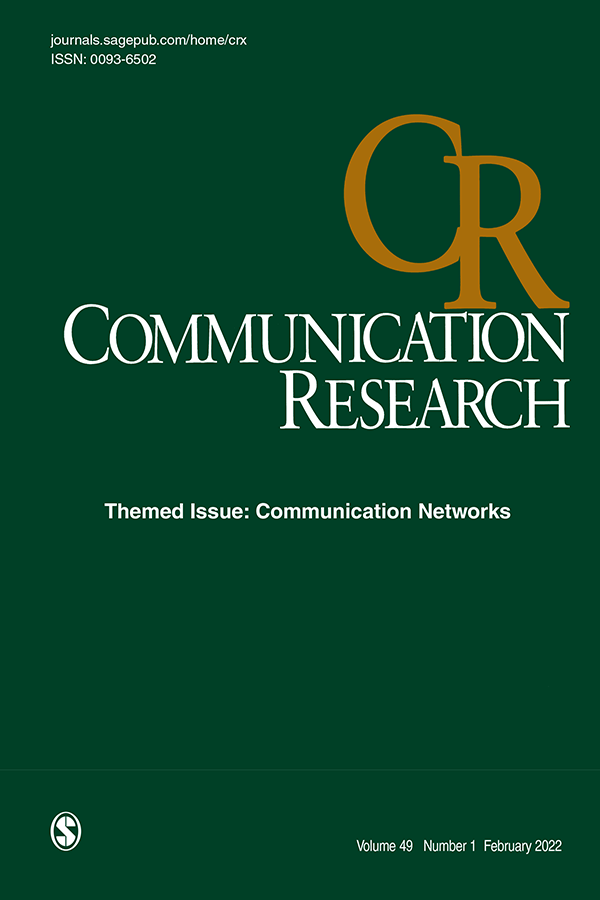Connected Yet Cognitively Drained? A Mixed-Methods Study Examining Whether Online Vigilance and Availability Pressure Promote Mental Fatigue
IF 3.2
1区 文学
Q1 COMMUNICATION
引用次数: 0
Abstract
This mixed-methods study investigates whether online vigilance promotes mental fatigue, and whether this effect is greater when under pressure to be available online. Additionally, it examines whether passively sensed smartphone behavior can serve as a digital proxy for online vigilance. Data were collected from 1,315 adult participants, who received 84 experience sampling questionnaires over 14 days, providing 67,762 usable datapoints on individuals’ perceptions of momentary online vigilance, mental fatigue, and availability pressure. Additionally, the smartphone use of 834 participants was passively monitored. Findings revealed both a momentary and lagged association between self-reported online vigilance and self-reported mental fatigue. Availability pressure was not a significant moderator, but did predict mental fatigue directly and indirectly, by promoting online vigilance. We found behavioral smartphone use features were weakly associated with self-reported online vigilance and mental fatigue. Overall, this study provides initial support that online vigilance may play a role in the development of mental health conditions such as burnout via its tendency to promote one of its precursors, mental fatigue.联系紧密却认知枯竭?一项混合方法研究,探讨在线警惕性和可用性压力是否会导致精神疲劳
这项混合方法研究探讨了在线警觉性是否会导致精神疲劳,以及这种影响是否会在面临在线压力时更大。此外,研究还探讨了被动感知的智能手机行为是否可以作为在线警惕性的数字代理。研究收集了 1315 名成年参与者的数据,他们在 14 天内接受了 84 份体验取样问卷,提供了 67762 个可用数据点,这些数据点涉及个人对瞬间在线警觉性、精神疲劳和可用性压力的感知。此外,还对 834 名参与者的智能手机使用情况进行了被动监测。研究结果显示,自我报告的在线警惕性与自我报告的精神疲劳之间存在瞬间和滞后关联。可用性压力并不是一个重要的调节因素,但它通过提高在线警惕性直接或间接地预测了精神疲劳。我们发现,智能手机的行为使用特征与自我报告的在线警惕性和精神疲劳有微弱的关联。总之,本研究初步证明,在线警觉性可能会通过促进精神疲劳等精神健康状况的前兆之一,在倦怠等精神健康状况的发展中发挥作用。
本文章由计算机程序翻译,如有差异,请以英文原文为准。
求助全文
约1分钟内获得全文
求助全文
来源期刊

Communication Research
COMMUNICATION-
CiteScore
17.10
自引率
0.00%
发文量
20
期刊介绍:
Empirical research in communication began in the 20th century, and there are more researchers pursuing answers to communication questions today than at any other time. The editorial goal of Communication Research is to offer a special opportunity for reflection and change in the new millennium. To qualify for publication, research should, first, be explicitly tied to some form of communication; second, be theoretically driven with results that inform theory; third, use the most rigorous empirical methods; and fourth, be directly linked to the most important problems and issues facing humankind. Critieria do not privilege any particular context; indeed, we believe that the key problems facing humankind occur in close relationships, groups, organiations, and cultures.
 求助内容:
求助内容: 应助结果提醒方式:
应助结果提醒方式:


